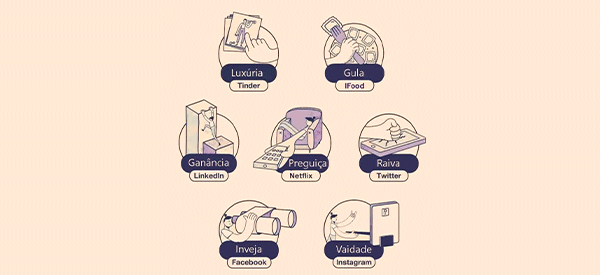The 7 Deadly Sins in Software Development
 Peter Rausch
Peter Rausch In the world of software development, valuable lessons can be learned by analyzing analogies with other fields. Analogies help make complex concepts more accessible. In this article, we will explore the "7 deadly sins of software development" from this perspective.
1. PRIDE: Ignoring Feedback and Criticism
A common mistake is believing that code is perfect and rejecting feedback or criticism. However, accepting feedback and criticism is essential for professional growth and the creation of high-quality code. Humility in relation to feedback is a valuable skill that enhances collective code understanding and reduces maintenance costs.
2. GREED: Prioritizing Profit Over Quality
Seeking quick profit or maximizing it without considering product quality is risky. The pressure to deliver untested software can result in serious issues, harming reputation and customer satisfaction. Economic responsibility must be balanced with software quality.
3. LUST: Adding Unnecessary Features
The temptation to add unsolicited features or additional complexity can hinder development. "Gold plating," or adding functionality beyond what is necessary, increases management costs, introduces bugs, and negatively impacts future maintenance. Stick to the defined scope, no more, no less.
4. WRATH: Getting Angry About Reported Issues
Hostility between developers and QA teams is detrimental. Both teams work towards the same goal: quality software. It is crucial to involve QAs in every stage of the process and treat bug reports with respect, not anger. Effective communication is essential.
5. GLUTTONY: Trying to Add Too Many Features at Once
Defining the MVP (Minimum Viable Product) and releasing features gradually is more efficient than overloading a single release with many features. This helps users adapt and avoids confusion.
6. ENVY: Copying Code Without Understanding It
Copying code without understanding its purpose is risky. It is important to comprehend the code you use, assess its efficiency and readability, and determine if there is a better way to solve the problem.
7. SLOTH: Postponing or Skipping Necessary Tasks
Software development involves interdependent stages. Skipping or postponing tasks directly impacts the final product's quality and delivery deadlines. Professionals should also invest in continuous learning and growth outside of working hours.
If you identify with any of these sins or seek guidance to avoid these pitfalls, we are here to help. Contact us to create quality software and achieve your development goals!





